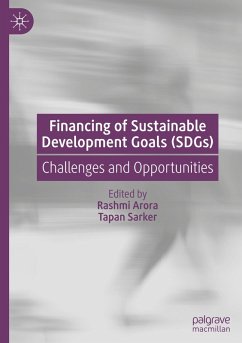
Millennium Development Goals
Ideas, Interests and Influence
Versandkostenfrei!
Versandfertig in 1-2 Wochen
167,99 €
inkl. MwSt.
Weitere Ausgaben:

PAYBACK Punkte
84 °P sammeln!
This book offers a comprehensive resource on the MDGs which includes information on their origins, trajectory, and effects, and how they shaped the policy agenda and thinking about international development. The author argues that the MDGs were a reductionist agenda that did not incorporate the more transformative and progressive elements of a human development strategy. As well as providing an historical account, this volume also questions the effectiveness of global goal setting as an instrument of global governance. It will interest students, researchers and policy-makers in the fields of d...
This book offers a comprehensive resource on the MDGs which includes information on their origins, trajectory, and effects, and how they shaped the policy agenda and thinking about international development. The author argues that the MDGs were a reductionist agenda that did not incorporate the more transformative and progressive elements of a human development strategy. As well as providing an historical account, this volume also questions the effectiveness of global goal setting as an instrument of global governance. It will interest students, researchers and policy-makers in the fields of development, politics, policy, and global goal setting.













